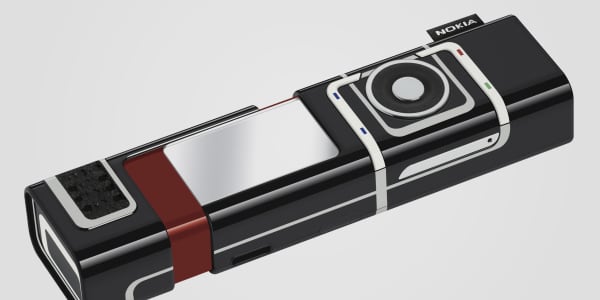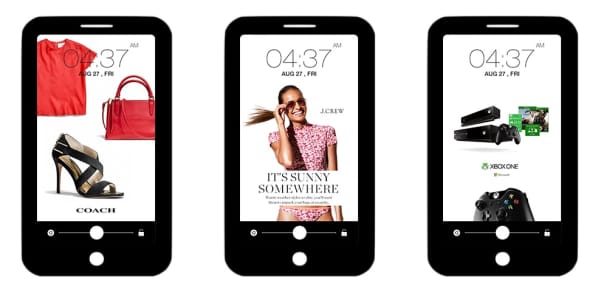The interest and publicity surrounding the latest generation of personal gadgetry – wearable tech – has yet to be seen in an increase of consumer interest. This has left analysts wondering whether smart watches and glasses have fallen victim to their own hype or if it's still early days for the next wave of consumer technology.
Wearable technology was all the rage last year and is set to be so again at 2014's Mobile World Congress (MWC) in Barcelona, with intrigue still surrounding the Google Glass and Samsung smartwatch.
And some surveys seemed to back this industry enthusiasm. Accenture's Digital Consumer Tech Survey for this year noted that nearly half of respondents expressed an interest in smartwatches and 40 percent were keen to know more about wearable eyeglasses.
Jolyon Barker, managing director for global technology, media and telecommunications at Deloitte, concurred: "Deloitte predicts that smartglasses, fitness bands and watches will sell about 10 million units in 2014, generating £2 billion."
Nonetheless, the Accenture survey highlighted some pockets of consumer resistance. It showed that 29 percent of U.K. consumers were interested in buying a smartwatch against the global average of 46 percent, and only 26 percent were keen on owning smart glasses.
Back in October, Gartner did warn that smartwatches in particular would dominate headlines but not consumer spend in the run-up to Christmas, arguing that most people still remained in the dark about the benefits of the product and the pricing still remained too high.
Annette Zimmermann, the principal research analyst at Gartner, wrote in an October report on smartwatches: "Samsung and other well-known vendors have recently entered the smartwatch space, yet the products we have seen so far have been rather uninspiring in terms of design, available apps and features."
The resilience of the smartphone
Speaking to CNBC Zimmermann predicts wearable devices will only remain a companion to mobile phones at least until 2017, with less than one percent of people replacing their phone with a combination of a wearable device and tablet.
Zimmermann said that at MWC wearable devices will be all the rage once more, "But it's always tied back to the mobile phone as your central hub. It is still the central unit through which to manage your other devices."
Many wearers of smartwatches have complained about them being too thick and heavy, as well as lacking in a long-lasting battery.
Anthony Mullen, an analyst at Forrester Research, told CNBC via email: "I think it was quite revealing that at the latest Consumer Electronics Show the biggest news for smartwatches was the seventies-ish looking Pebble Steel. Not quite a V2 or re-imagining by any stretch."
Furthermore, while the smartwatch can alert you, you sometimes cannot read the details of a message or a notification of an app on the watch, and instead must turn back to your smartphone.
With smartphones getting smarter they may not be a need for consumers to carry around another piece of tech. Carolina Milanesi, research vice president at Gartner predicts: "If there is heavy traffic, it (your smartphone) will wake you up early for a meeting with your boss, or simply send an apology if it is a meeting with your colleague, " she wrote in a November 2013 note entitled: "Gartner Says by 2017 Your Smartphone Will Be Smarter Than You."
"The smartphone will gather contextual information from its calendar, its sensors, the user's location and personal data."
Making wearable worthwhile
For wearable tech to really catch on they not only need to become more self-sufficient - not relying on our smartphones to work - but they also need to be, well, wearable.
Zimmermann explained: "The Google Glass is the most intrusive type of wearable tech. We have said that a wearable device shouldn't be so obvious or something that is in your way; it needs to be there but something that can be used without interrupting your main task."
However, one area where Zimmermann did state that wearable tech did have a future is when it comes to health and fitness: "That is a big trend and that's the easiest part to exploit at the moment for the industry," she said.
For example, the Nike Plus FuelBand is a popular piece of kit, which records a user's physical activity, steps taken daily, and amount of calories burned.
Clearly each piece of wearable technology needs to find its niche and to explain to users why they need it, whether it be alongside their smartphone or as an eventual replacement.
"Samsung did not do a good job with product," Zimmermann said, regarding the smartwatch."People don't know why they should buy one. I'm hoping Apple will come out with a product this year."
Style may be key, as alluded to by Zimmermann when discussing the intrusive nature of some wearable tech. Fitbit Flex, another health and fitness tracker similar to the FuelBand, recently teamed up with American fashion designer Tory Burch to help produce a line of pendants, bracelets and wristbands that hold the Fitbit Flex tracker.Thus, wearable technology will not have to be so obvious for self-conscious individuals.
Certainly, wearable tech has along way to go and smartphones will dominant in the near term.
But, as J.P.Gownder, an analyst at Forrester Research, wrote: "There's no doubt about it: The wearables market is suffering from a hype bubble. But consider that the Internet itself suffered from a hype bubble circa 1999, and yet the Internet turned out to be just as important as people had imagined."
—By CNBC's Kiran Moodley. Follow him on Twitter @kirancmoodley




